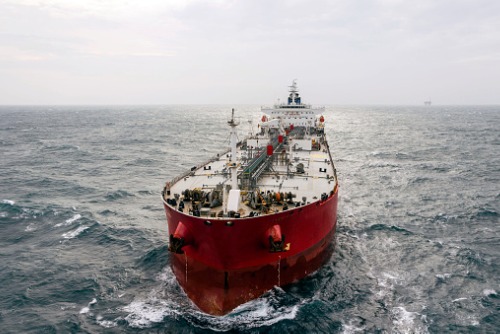
Companies in the gas and petroleum industry can be divided into three major categories depending on their actual role in the supply chain. These categories are the upstream sector, downstream sector, and midstream sector.
Integrated oil and gas companies occupy at least two of these positions in the supply chain, whereas all others are designated by their supply chain positioning.
A company that is considered an upstream oil and gas enterprise is involved with the identification, extraction, exploration, and production of raw materials. Downstream companies are positioned closer to the consumer in the supply chain.
Midstream oil and gas companies are placed right in the middle, acting as a buffer between upstream and downstream operations.
The accounting standards can be significantly different for each of these types of companies, given that their functions are so different from each other.
A better understanding of the roles played by each type of company will help oil and gas accountants have a greater understanding of the differences in standards and procedures in accounting and financial reporting.
Below is an overview of the roles played by each type of company, and brief comments as to how their accounting procedures might differ from each other.
Learn more about COPAS, the Council of Petroleum Accountants Societies!
Upstream Procedures
A company that is involved with upstream oil and gas processes conducts operations that serve to discover deposits, drill wells, and extract raw materials from below the surface.
Upstream companies are sometimes referred to as development, exploration, and production companies. They often perform feasibility studies, rig operations, machine rentals, and the extraction of various types of petrochemicals.
Technical experts who are employed at upstream oil and gas companies might include geologists, petrochemical scientists, engineers, service rig operators, geophysicists, seismic contractors, and drilling contractors.
These professionals locate and estimate the reserves of oil or gas in a given location, prior to the beginning of any kind of drilling activity. Likewise, when drilling activities are successful, these professionals operate the properties in ways intended to maximize efficiency, safety and profitability.
Their operational work is supported by land, legal, and financial professionals who facilitate the development of leases, contracts, and agreements to define areas of exploration, operational parameters, cost distribution, and equalization.
Procurement teams emphasize the development and optimization of the supply chain, as well as the development of strategic sourcing policies and workflows, all while striving to establish a competitive advantage by optimizing contract management.
Therefore, a significant goal of upstream accounting procedures is to optimize relationship management with suppliers, so as to achieve competitive advantages and greater profitability. This creates a framework for the most efficient and value-focused procure-to-pay types of processes.
In terms of the accounting procedures for upstream operations, the financial practices tend to mirror the actual production process, with particular emphasis on connectivity between costs and activities, especially in joint operations.
Recommended Read How You Can Control Oil and Gas Operating Costs By Utilizing New Technologies
Midstream Procedures
Companies that occupy the midstream sector in the supply chain are involved with the trading, transportation, and storage of raw natural gas, crude oil, and other refined products.
Essentially, Midstream oil and gas companies provide transportation from upstream companies (who produce the products) to downstream companies (who sell the oil and gas products to consumers).

Midstream companies also store natural gas and crude oil products while they are awaiting transfer to a refinery or to a downstream market. Storage is an important component of midstream operations because there is almost always some kind of delay between production and delivery.
For the most part, crude oil is transported by trucks, tankers, or pipelines. Eventually, almost all oil will be moved through pipelines at some point in the transportation process to market.
For instance, after extraction, oil is typically separated from natural gas and then transported to a refinery or another carrier via pipeline. At this point, petroleum products will often be transported by railroad car, truck, or tanker, which will actually bring them to the market.
Tankers are also used to transport oil and refined products between foreign countries and the United States.
Correct accounting for volumes, quantities, product quality, and various contractual fees and duties are paramount in midstream accounting. Accounting procedures are tailored to confirm this accuracy with appropriate controls.
Downstream Procedures
Downstream oil and gas production is at the opposite end of the spectrum from upstream activities. It is much closer to the end-users who purchase the final products.
All downstream operations occur after the production phase and prior to the point of sale. These operations are the final step in the production process in the oil and gas industry. The typical representatives of this process are natural gas processors and refiners of crude oil.

These companies are responsible for bringing finished goods to consumers and end-users. They are also involved in the marketing and distribution of natural gas and crude oil products.
Aside from the midstream activities described previously, anything that relates to the post-production of natural gas or crude oil is considered part of downstream oil and gas activities.
Typically, you would find companies like petrochemical plants, natural gas distributors, retail outlets, oil refineries, and petroleum product distributors among the downstream companies in the supply chain.
There are a number of these downstream companies that are quite diversified and include a number of different production processes in their overall portfolio.
The products that result from downstream production would include heating oil, gasoline, diesel oil, pesticides, lubricants, propane, pharmaceuticals, jet fuels, and natural gas.
With respect to accounting, the specific procedures involved in downstream oil and gas production companies again mirror the activities involved with actual production.
However, efficient procurement strategies, including timely payment of vendor invoices and positive vendor interaction, are particularly impactful to the success of a downstream oil and gas company.
Therefore, many accounting activities in downstream business are “vendor-facing” as opposed to “customer facing.” This contributes to downstream companies’ overall value-driven strategy.
Become a Member of COPAS!
Members of COPAS are at the forefront of driving change and innovations that shape accounting in the oil and gas industry.
Being a member of COPAS gives petroleum accountants societies leverage in the industry, increased knowledge, insight, and a platform to collaborate with like-minded professionals in order to advance further than ever before.
By joining COPAS, you can outpace the rest and learn more about our industry’s best accounting practices, standards, and guidelines.
COPAS is comprised of more than twenty-six different petroleum accounting societies from all across the United States. Join us today to gain access to educational courses, a staggering number of resources, and create new opportunities for your career.
COPAS POLICIES: Complaints | Cancellation & Refund Policy

